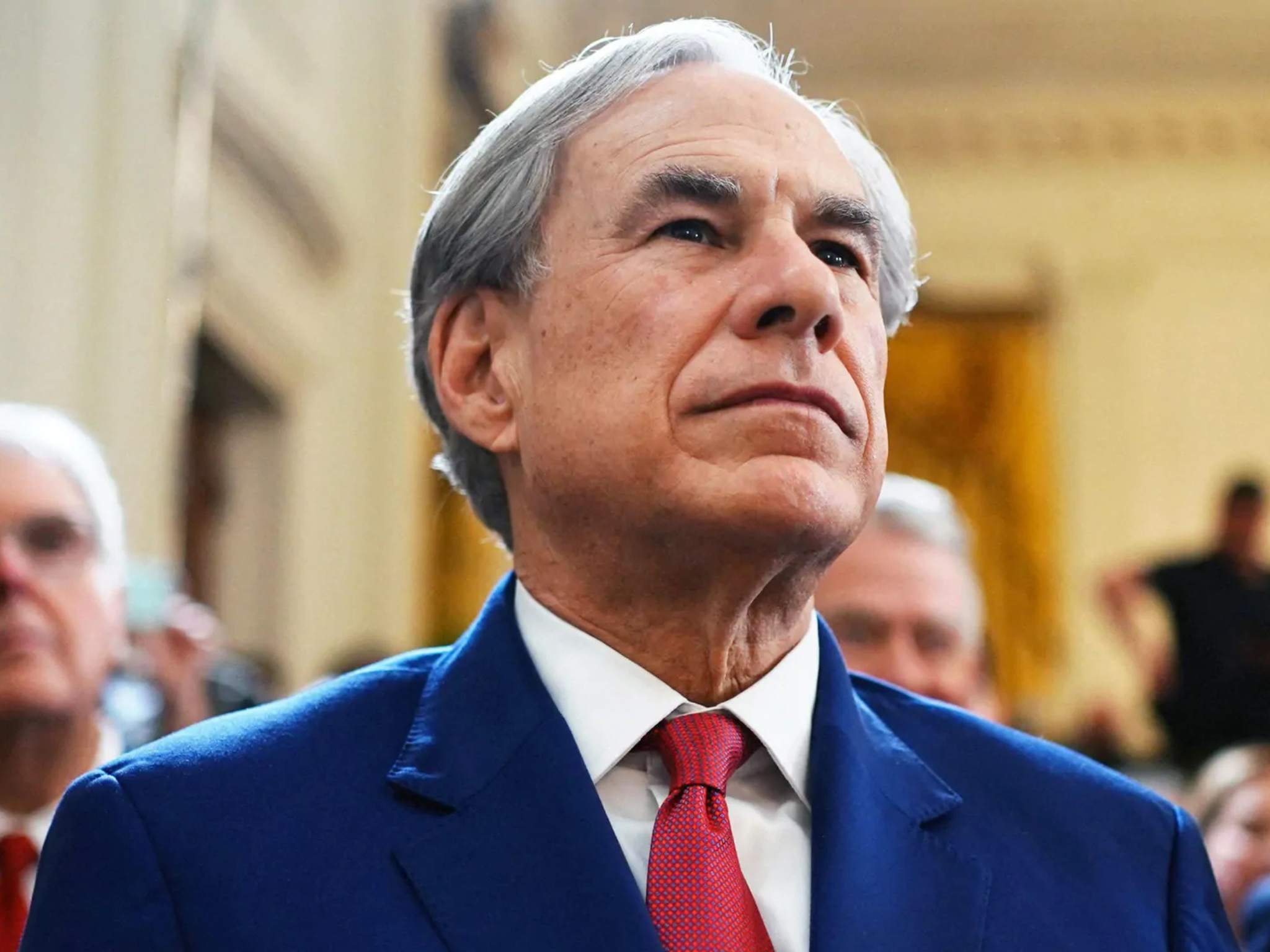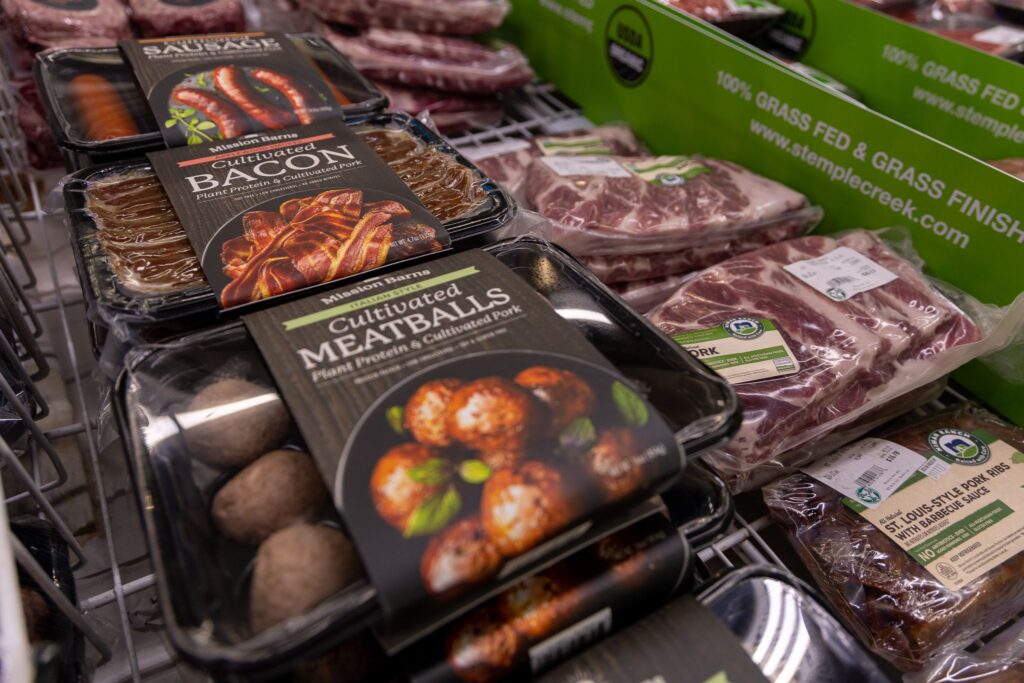
Texas Governor Greg Abbott has made the state the seventh in the US to ban the sale of cultivated meat. He has also ordered an investigation into ultra-processed foods.
Despite two more companies receiving regulatory approval to sell cultivated proteins in the US this year, the number of states banning these foods continues to rise.
Texas has become the latest state to prohibit the sale, the result of an effort that began in November. SB 261 was one of the 300-plus bills signed into law by Governor Greg Abbott last week, imposing a two-year ban that starts on September 1 this year.
“The offering for sale or sale of cell-cultured protein for human consumption within this state is unlawful and prohibited,” the bill read.
It was backed by the cattle industry, which took a familiar line to its bipartisan passage last month. “The bill prohibits the sale and offer of sale of cell-cultured proteins to prevent Texas consumers from being a science experiment as companies seek to profit from selling cell-cultured protein with no long-term health studies,” said the Texas & Southwestern Cattle Raisers Association (TSCRA).
“This bill also pushes back on an agenda by certain radical groups and companies who seek to end traditional animal agriculture,” it added.
Texas takes aim at cultivated meat and ultra-processed foods

The effort to ban cultivated meat in Texas was spearheaded by Senator Charles Perry, who authored 2023’s SB 664, which successfully restricted how these proteins are labelled.
The bill was read for the first time in February, and eventually passed the Senate with no opposition. In the House, two-thirds of representatives voted in favour, while only a quarter were against the measure. It moved to the governor’s desk last week, and was signed alongside hundreds of bills.
Despite banning their sale, it still outlines how cultivated meat products must be labelled. It necessitates that these foods need to be labelled in a prominent font that’s equal to or larger than the surrounding text, using the terms ‘cell-cultured’, ‘lab-grown’, or “a similar qualifying term or disclaimer intended to clearly communicate to a consumer the contents of the protein”.
“Ranchers across Texas work tirelessly to raise healthy cattle and produce high-quality beef,” TSCRA president Carl Ray Polk Jr said last month. “Our association is grateful for those legislators who voted in support of this legislation and understood the core of this bill, to protect our consumers, the beef industry and animal agriculture.”
As the leading cattle producer in the US, Texas’ impact on the planet is outsized. Beef is the food system’s single-worst polluter, emitting twice as many greenhouse gases as the next product on the list (dark chocolate).
Instead of mitigating the impact of beef, Texas – like many other US states – is exploring ways to protect the industry, which is the third-largest economic generator in the state. It comes amid a wider backdrop of a federal administration that has rallied against what they call “fake meat”, coupled with the rise of the meat-eating manosphere, which led Americans to spend more on meat last year than ever before.
Apart from banning cultivated meat, Abbott signed a bill called Make Texas Healthy Again, aligning with health secretary Robert F Kennedy Jr’s MAHA movement. A key focus? To review the impact of ultra-processed foods (UPFs) on human health, keying into a major point of discourse in American food culture.
It chimes with a similar executive order from California Governor Gavin Newsom, and RFK Jr’s opposition to these foods, which include alternative proteins like plant-based and cultivated meat. The US Food and Drug Administration (FDA) is now working to develop a definition of UPFs too.
US both the most receptive and opposed to cultivated meat

Texas is the seventh state to outlaw the sale of cultivated meat, following in the footsteps of Florida, Alabama, Mississippi, South Dakota, Indiana, and Nebraska. In fact, more than 20 states have tried to do so over the last few years. In the current legislative session, this includes South Dakota, South Carolina, West Virginia, Montana, Wyoming, and Georgia, among others.
These bans have been criticised for limiting consumer choice, stifling innovation, and being anti-competitive. One farmer told the AP that he welcomes cultivated meat producers to “jump into the pool” and try to compete with his Waygu beef, while the North American Meat Institute has suggested that these bans “bills establish a precedent for adopting policies and regulatory requirements that could one day adversely affect the bills’ supporters”.
Even consumers are against these efforts. Every American who tasted Upside Foods’ cultivated chicken ahead of Florida’s move last year opposed political bans on these foods.
States are already facing legal challenges. Florida has been sued by Upside Foods, the first company to receive federal approval to sell cultivated meat in the country, with a judge recently rejecting the state’s request to throw out the case.
And in sharp contrast to the legislative upheaval, the FDA approved two additional companies to sell cultivated meat, with Mission Barns now awaiting the greenlight from the Department of Agriculture for its pork fat, and Wildtype’s salmon already available in a Portland restaurant. These companies have joined Upside Foods and Eat Just’s Good Meat in getting the FDA greenlight.
All this illustrates the contradictory landscape around cultivated meat regulation. While the US is the country with the most attempted (and successful) bans on these proteins, it’s also the one with the most approvals. Over the coming months, more of both are expected.
The post Texas, America’s Largest Beef Producer, Becomes Seventh State to Ban Cultivated Meat appeared first on Green Queen.
This post was originally published on Green Queen.